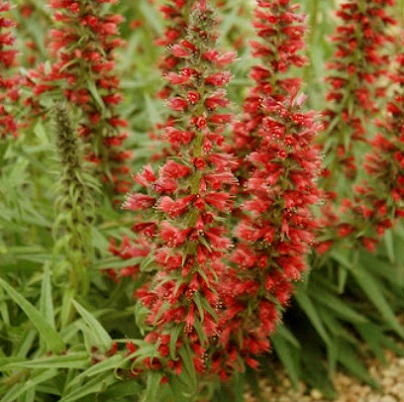South Korean Scientists Discover That Rosmarinic Acid from Echium Amoenum Can Help Combat Gastric Cancer
Nikhil Prasad Fact checked by:Thailand Medical News Team Dec 08, 2024 1 year, 1 week, 5 days, 18 hours, 18 minutes ago
Medical News: Gastric cancer is a leading health challenge, ranking as the fifth most prevalent cancer globally and one of the deadliest. It often remains undetected until advanced stages, making effective treatments a significant concern. Scientists from Sun Moon University in South Korea have uncovered promising natural agents against this disease: Echium amoenum, a traditional medicinal plant, and its active ingredient, rosmarinic acid. This
Medical News report delves into their study and findings.
 Rosmarinic Acid from Echium Amoenum Can Help Combat Gastric Cancer
The Power of Nature
Rosmarinic Acid from Echium Amoenum Can Help Combat Gastric Cancer
The Power of Nature
Echium amoenum, commonly known as borage, has long been celebrated for its medicinal properties. Traditionally used for anti-inflammatory and stress-relieving purposes, it is now under the scientific lens for its anticancer capabilities. This study focused on the ethyl acetate extract of Echium amoenum (EAEC) and its major active compound, rosmarinic acid (RA), examining their effects on AGS gastric cancer cells.
Key Findings of the Study
The researchers discovered that both EAEC and RA significantly inhibited the growth and spread of AGS cells. The experiments revealed that these natural agents work by promoting apoptosis, a form of programmed cell death, and hindering epithelial - mesenchymal transition (EMT), a process crucial for cancer metastasis.
Suppressing Growth
Through laboratory assays, EAEC and RA were shown to halt AGS cell proliferation. This effect was most potent in AGS cells compared to other cancer and normal cell lines, making it a promising targeted treatment for gastric cancer. The active ingredient, RA, was confirmed through advanced techniques such as high-performance liquid chromatography and mass spectrometry.
Promoting Cell Death
Both EAEC and RA induced apoptosis by activating caspase proteins and reducing survivin levels, a protein that helps cancer cells evade death. This mechanism ensures that cancer cells self-destruct without harming surrounding healthy tissue.
Blocking Metastasis
Cancer spread is a major cause of mortality, but EAEC and RA demonstrated significant potential in stopping this process. Wound-healing assays showed that these agents effectively inhibited cancer cell migration, while invasion tests confirmed their ability to prevent AGS cells from penetrating surrounding tissues.
Molecular Mechanisms
The anti-cancer effects of EAEC and RA are linked to their ability to modulate signaling pathways crucial for cancer progression. They inhibit the activation of STAT3, AKT, and ERK1/2 pathways, which are involved in cell survival, proliferation, and migration. Furthermore, they upregulate E-cadherin, a marker that keeps cells anchored, while downregulating N-cadherin and vimentin, proteins associated with cancer cell mobility.
In Vivo Validation
t;
In an innovative approach, the study employed a chick embryo chorioallantoic membrane (CAM) model to test the effects of RA on tumor growth. The results were remarkable. Tumors treated with RA showed significantly reduced growth and weight, underscoring the compound's effectiveness beyond the petri dish.
Implications for Gastric Cancer Treatment
This study offers compelling evidence that EAEC and RA can serve as natural agents in the fight against gastric cancer. Their ability to target both cancer cell growth and metastasis makes them unique. These findings highlight the potential of integrating natural compounds into mainstream cancer therapies, possibly reducing the side effects associated with conventional treatments.
Conclusion
Gastric cancer remains a formidable health issue, but nature might hold the key to innovative treatments. The findings of this study suggest that Echium amoenum and rosmarinic acid could be groundbreaking in managing gastric cancer. They work by inducing apoptosis, inhibiting metastasis, and targeting key molecular pathways. However, further research is essential to explore their potential in clinical settings and their synergistic effects with existing treatments.
These natural agents not only promise a new approach to cancer therapy but also underscore the importance of traditional knowledge in modern medicine.
The study findings were published in the peer-reviewed International Journal of Molecular Sciences.
https://www.mdpi.com/1422-0067/25/23/12909
For the latest on Herbs and Phytochemicals, keep on logging to Thailand
Medical News.
Read Also:
https://www.thailandmedical.news/news/new-findings-on-dendrobium-polysaccharides-show-promising-gastric-protection
https://www.thailandmedical.news/news/the-phytochemical-erianin-found-in-dendrobium-orchids-shows-promise-in-fighting-gastric-cancer
https://www.thailandmedical.news/news/herbs-and-phytochemicals-extracts-from-rhizomes-of-atractylodes-macrocephala-koidz-baizu-can-help-in-gastric-cancer
https://www.thailandmedical.news/articles/herbs-and-phytochemicals
